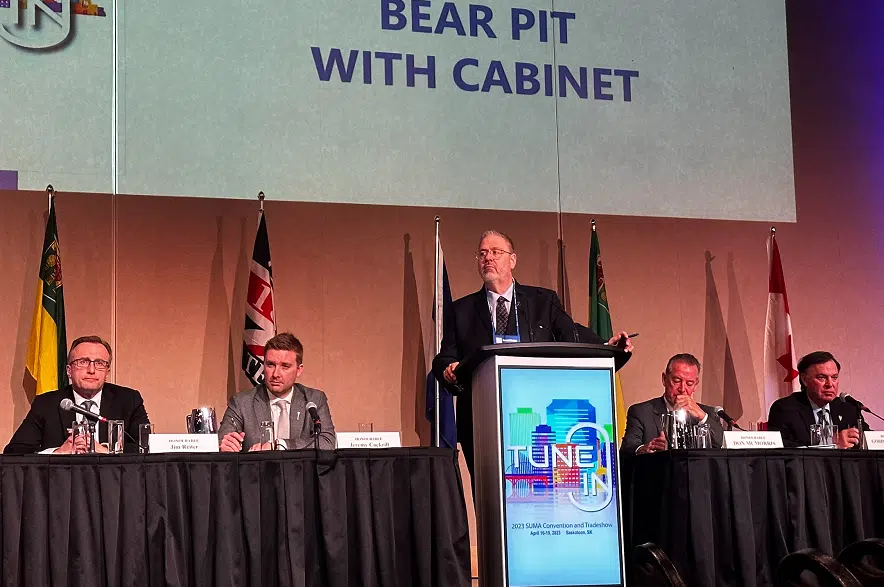The three-day gathering that allows towns and cities from across Saskatchewan to share ideas and concerns has come to a close.
The annual Saskatchewan Urban Municipalities Association convention was held in Saskatoon this week, and thousands of representatives were able to network and discuss issues face to face with leaders from other communities.
After days of meetings, the final event – known as the “Bear Pit” – allowed members to ask cabinet ministers from the Saskatchewan government directly about their concerns.
Mitch Hippsley, the mayor of Yorkton, brought up the ongoing mental health and addictions crisis in the province, and asked what’s being done to address it.
“We witnessed mental health issues explode during the pandemic, and now people can be waiting six months or more to receive help,” Hippsley said.
Everett Hindley, Saskatchewan’s mental health and addictions minister, said work is being done to add more beds to treatment centres and allow for immediate services in some areas.
“We have a number of these walk-in mental health clinics across Saskatchewan,” Hindley said.
“We’re at 31 communities right now through Family Services Saskatchewan offering services to adults. We’re now expanding that, starting in 11 of those communities, to allow access for children and youth.”
Health care was also a big topic throughout the session, and Oxbow Coun. Rachelle Kitz wanted to know what is being done to bring doctors into rural communities, aside from financial incentives.
“I can tell you we’ve brought in 160 more doctors in the last 18 months – 60 of those have been family physicians,” Health Minister Paul Merriman said.
Premier Scott Moe added that the shortage of doctors isn’t only a Saskatchewan problem, and it’s being felt across the country.
While representatives were able to ask questions directly to ministers, Prince Albert Coun. Tony Head said he wasn’t fully satisfied with the answers he received.
He asked if there would be more funding invested into First Nations and Indigenous people after the $1-billion surplus in the recent provincial budget.
“I’m not sure I got the answer that I wanted to get. They seemed to skirt the issues a bit. I wish they were a bit more forward with their answers,” Head said.
Head said there needs to be continued work on truth and reconciliation instead of just land acknowledgments.
“Nothing happens where it needs to happen. My people are suffering while the province they live in celebrates wealth and success,” he said.
“First Nations people and Indigenous people alike need to be involved in those conversations, and consultation with the government is crucial.”
Other issues raised during the question period included interprovincial health care, the Saskatchewan Income Support program, and improving the province’s highways.











